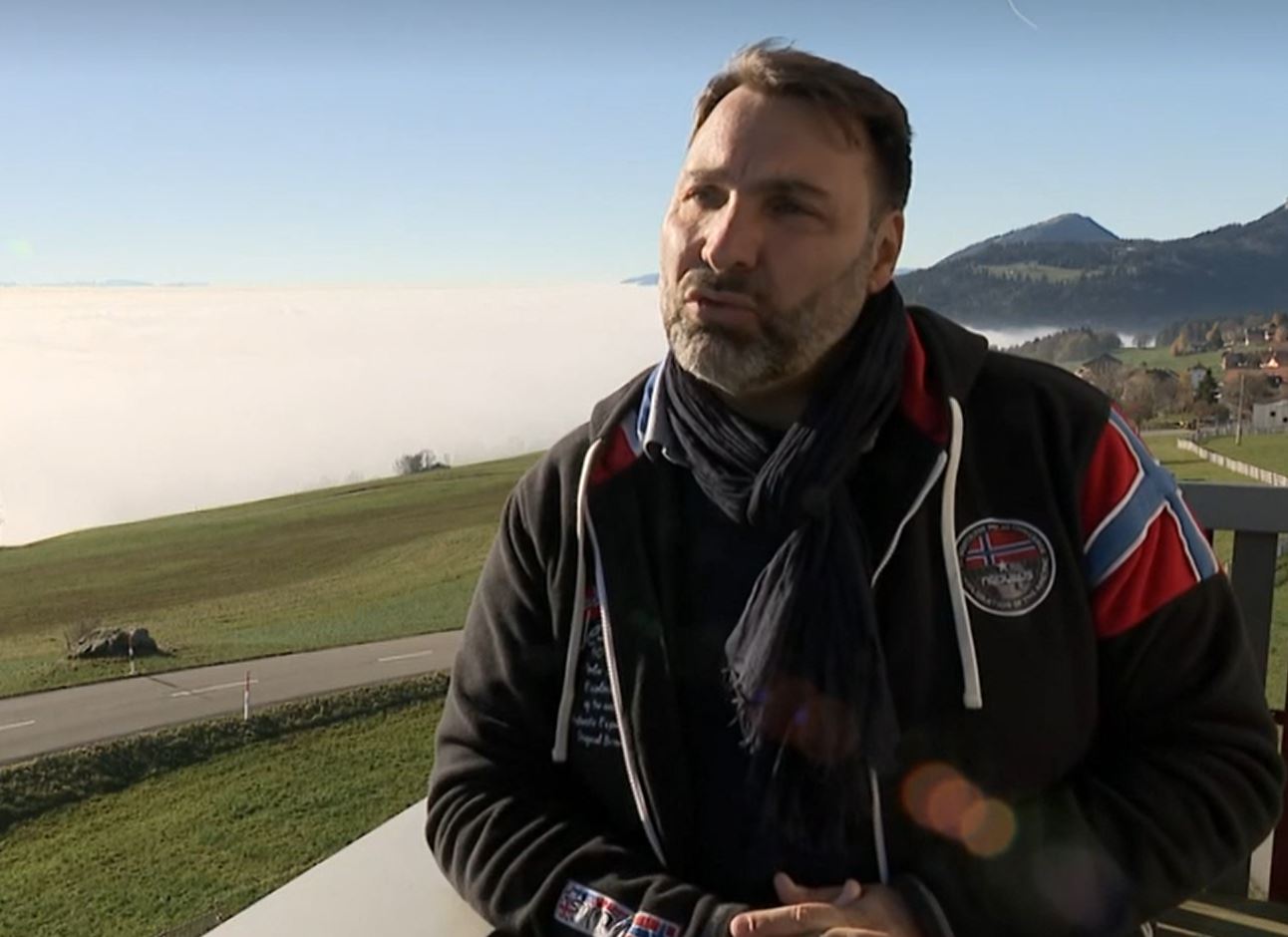
Raoul Savoy: ‘I am the prophet who is unknown in his own country’

Alongside Murat Yakin and Thomas Häberli, Raoul Savoy is the only Swiss to coach another country’s national football team. He dreams of the World Cup and of a return to Switzerland. However, he feels slighted by his home country's football associations who did not take him seriously.
Raoul Savoy is not a household name in Switzerland. Originally from Vaud, his career as an amateur goalie came to an end at the age of 28 due to a shoulder injury.
In 2013 he coached FC Sion’s U21 team in the Promotion League, the third-highest league in Switzerland. But that was as far as his coaching career went in his home country.
His World Cup dream faces challenges
At 50-years-old, Savoy’s work in Africa External linkis much more exciting: He has worked with players from Morocco to Algeria to Gambia, Ethiopia, Cameroon and Eswatini (formerly Swaziland). He has coached teams from the north to the south of Africa.
Now he finds himself as the coach of the Republic of Central Africa, his team narrowly missing out on qualifying for the 2024 Africa Cup by just two points. His team gained their first point in the World Cup qualifiers in November drawing with Mali 1-1.
Reaching the finals is Savoy’s dream. “I want to give the country its first opportunity to make it all the way and make the people here even prouder. And of course, as a coach, it is always a dream to take part in a World Cup,” he says.
Coaching stars like Kondogbia
Savoy is also aware that this may remain an unfulfilled dream. The Republic of Central Africa is one of the poorest countries in the world. There is a lack of money for the basic necessities, let alone funding for football.
This lack of funding has seen many of the countries most promising players growing up in Europe to earn money there. Not all of them are prepared to take on the hardships of risking their careers for their home country.
The best example of this is Geoffrey Kondogbia. Kondogbia, currently playing for Marseille, the former Inter Milan and Atletico Madrid player has only played in a dozen international matches at the age of 30, some of them as captain.
A coach among many other hats
Savoy is much more than just a coach in his current role. Scouting is just as much a part of his job as travel planning. “You have to organise a lot more, take care of many things. Traveling and organising takes a lot of work. Sometimes it’s difficult to find accommodation for the team,” he explains.
But he doesn’t have to worry about his personal safety. “I have an important job, I’m known here. The authorities keep an eye out for me,” he says.
His life in Central Africa has little in common with that of his home in Sainte-Croix, 1,085 metres above sea level, in canton Vaud.
Savoy became national coach for the first time in 2014. However, the team fell apart during the civil war. His next coaching gig in Gambia ended after it ran out of funding. In 2015, Savoy was suddenly unemployed.
Slighted in Switzerland
He obtained his coaching diploma at the UEFA Pro Licence level, however, not in Switzerland, but in Scotland. “When I applied for the course in Switzerland, the association thought I was a tourist and didn’t take me seriously,” Savoy told the Swiss newspaper group Neue Zürcher Zeitung (NZZ) two years ago.
This slight has made his relationship with his home country is somewhat icy. “I was never approached in Switzerland. In Africa, people appreciate my 20 years of experience and my qualities,” says Savoy.
But he hasn’t given up completely, he still feels a longing to his home country. “Switzerland is my home and I feel a bit like a prophet here who is of no value in his own country. But it’s true: I would love to be a coach in Switzerland one day”.
While not yet returning as a coach, he will be spending the next few months in Switzerland – on the heights of the Vaud Jura, where his wife and two daughters live.

In compliance with the JTI standards
More: SWI swissinfo.ch certified by the Journalism Trust Initiative


























You can find an overview of ongoing debates with our journalists here . Please join us!
If you want to start a conversation about a topic raised in this article or want to report factual errors, email us at english@swissinfo.ch.